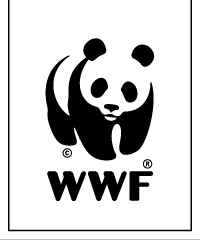Big wins in the war against wildlife crime
When poaching of elephants, rhinos and tigers skyrocketed to meet illegal demand for wildlife products, WWF and TRAFFIC launched a global campaign to mobilize action. Together with partners and with supporters like you, we were able to make a big difference!
Some of the year's many achievements are captured here. There is still hard work ahead, but we will keep fighting to ensure a future for these species in the wild.
We are standing firm. Thanks for joining us on the frontline!
Better protection
After foreign poachers killed 300 elephants in a Cameroon park, the country sent an elite military force of 600 soldiers to guard its borders, and began recruitments for 2,500 additional rangers.
- In China, man’s best friend has been enlisted to detect illegal wildlife products. New sniffer dogs are undergoing a rigorous training regime before being deployed for duty.
- New technology has given ecoguards in Nepal eyes in the sky to spot poachers. With support from Google, WWF is also teaching rangers in Namibia how to use conservation drones.
- In a landmark agreement, South Africa and Viet Nam came together to face the scourge of rhino poaching.
- In Gabon, a special “Jungle Brigade” with elements from the police forces has been created to investigate wildlife crime cases.
Tougher penalties
- A rhino horn smuggler in South Africa was sentenced to a jail term of 40 years for his role in a crime syndicate that orchestrated poaching.
- After citizens took to the streets to march against poaching, Kenya has put forward a new wildlife law that increases penalties.
- In Russia, a tiger poacher was sentenced to 14 months disciplinary labor and a $18,500 fine for shooting one of the rare cats.
- Japan moved to set prison sentences for wildlife crimes up to 5 years.
- Guns and ammunition used to kill elephants has been banned across Gabon. The country is also revamping its legislation to strengthen penalties.
- WWF supporters in the UK sent 5,000 letters to their representatives asking that wildlife enforcement be allocated more resources.
- Members of the UN’s Commission on Crime Prevention and Criminal justice passed a resolution declaring illicit wildlife trafficking to be a “serious crime” requiring sentences of 4 years or more.
New champions
- Thanks to Leonardo DiCaprio and YOU, WWF together with Avaaz, secured 1.6 million petition signatures asking Thailand to ban ivory sales.
- Gabon President Ali Bongo destroyed guns and ivory tusks seized from poachers in a fiery display of zero tolerance. Philippines followed by crushing 5 tonnes of ivory.
- Other African heads of state including Botswana President Ian Khama, South Africa President Jacob Zuma and Kenya President Uhuru Kenyatta have also expressed deep concern over wildlife trafficking.
- At the United Nations, Secretary General Ban Ki Moon reported to the Security Council that poaching and smuggling is a “grave menace” to peace and security.
- Warning that wildlife crime also threatens economies, African Development Bank President Donald Kaberuka joined WWF to launchThe Marrakech Declaration, an action plan for cooperation between countries.
- In his London palace, Prince Charles and his son Prince William welcomed governments from around the world to explore ways to stop the slaughter.
- Countries failing to uphold their commitments under CITES, the UN treaty that regulates international wildlife trade, were warned to clean up their act or face possible economic sanctions.
- Member countries of the Asia-Pacific Economic Cooperation declared their commitment to strengthen efforts to combat the illegal trade in wildlife.
- As US Secretary of State, Hillary Clinton initiated Wildlife Conservation Day at embassies around the world. The US Senate Foreign Relations Committee also took up the issue under the leadership of then Senator John Kerry.
- At ceremonies in Nairobi and Bangkok, religious leaders from across Africa and from the Thai Buddhist community offered their voices in prayer and in support of the protection of threatened species.
Addressing demand
- In front of 178 governments, Thai Prime Minister Yingluck Shinawatra pledged to close the country’s ivory markets for good.
- In Viet Nam, 65 million mobile phone subscribers are receiving SMS text messages asking them to say no to rhino horn.
- In China, the biggest players in e-commerce have cracked down on the sale of illegal wildlife products like tiger bone wine.
- In Central Africa, leaders joined together to ask ivory consumer countries in Asia to take action to stop demand that is killing elephants while also pledging to do more at home.
Our South African Rhino Raid game has been downloaded over 500,000 times; mostly from Asia where demand for rhino horn is highest.
Share this



